Contents
In my humble opinion many of us over-complicate personal finance.
We simply don’t know what to focus on, so we end up either doing nothing.
Either that or we try to do everything – with predictable results.
We’re told to downsize our spending, cut unnecessary expenses and to install all manner of money-saving apps.
We’re advised to invest in the stock market, in real estate and in a pension.
We’re encouraged to jump from one job to the next to land pay raises, while simultaneously building a side hustle and managing our portfolio of passive income projects.
We’re instructed to buy a house (then instantly pay it off). To get a credit card to build our credit (but pay that off too each month). To get the right insurance. To churn credit cards for points.
And on and on.
There are just so many things that the “experts” tell us we should be doing it can be hard to know where to focus.
So where do you start? How do you make meaningful progress?
That’s what I want to talk about today.
In this article I want to talk about deciding on your “money focus” .
In this way you can forget about everything else – for the moment at least. And, with a little luck and a lot of hard work, find yourself 12 months from now in a much stronger financial position than you are right now.
So, let’s start off by looking at five crucial categories of personal finance to see if they’re right for you…
Should I Reduce My Expenses?
The driving force in building a strong financial future is spending less than you earn. The wider this gap between income and outgoings becomes the quicker you’ll be able to save for the future, and so transform your financial situation.
So, spending less and earning more are two sides of the same coin. Of the two, however, reducing your expenses is probably the “quickest win” because you have a large level of control over your spending.
Your goal should be to gain an intimate knowledge of where your money is going each month, and to actively figure out ways to cut these expenses. Some simple examples include:
- Taking lunch with you to work rather than buying pre-made food
- Cooking at home rather than eating out
- Cancelling unused monthly subscription packages
- Comparing the price you pay for routine bills like your cell phone, utilities and TV to see if there are cheaper alternatives out there
Of course, this is just scratching the surface and there are hundreds of ways to potentially reduce your spending.
Personally I found literally hundreds of pounds of savings in my first month of spending less, and continued to find additional cuts for many months afterwards,
The important lesson here is that cutting your spending isn’t a one-off process. It’s something you should seek to adopt into your everyday life, and to continually revisit. Even to this day I carefully analyze my spending at the end of every month.
If there’s very little slack in your budget each month, and you’ve never seriously focused on living more frugally then this is probably the best place to focus your attention right now.
Once your monthly spending is slashed to the bone then you’ll be in a better position to engage with some of the other potential money focuses outlined below.
Should I Increase My Income?
Cutting your spending may be the quickest way to start your journey to financial growth but the impact is limited. After all, we still need to pay our rent or mortgage, we need to pay our taxes, to eat and so on.
The second option is therefore to increase your income.
Note that increasing your income should always come after reducing your expenses (in my humble opinion).
The reason is that the world is full of high-earners who still can’t make ends meet. It’s natural for your lifestyle to expand with your salary. Soon enough you’re working more hours than ever before, without your family ever really benefiting from your sacrifice.
Once you’ve mastered the art of controlling your spending, however, it becomes far easier to benefit from an increased income.
Once again, there are many ways to increase your income. Just a few options include:
- Requesting a pay raise at your current employer.
- Preparing yourself for a promotion by making yourself the only obvious candidate.
- Hopping to a new company for a considerable pay raise.
- Changing from a low paying industry to a higher paying one.
- Starting a “side hustle” – a business that you can run in your spare time such as writing Kindle books, building an ecommerce store or starting a blog.
There are no “right” or “wrong” options. Many people don’t have the time to start a business of their own. Fortunately, a lack of money shouldn’t be too much of an issue, as you’ve already cut your spending by this point. That means that dropping $50 on some web hosting etc. shouldn’t cause you too much issue.
Other people are bored with their jobs, and the idea of starting their own business can fill them with inspiration.
The key is figuring out what your best options are, then going after them with tenacity.
Should I Pay Off My Debt?
As the gap between your income and expenses continues to widen, so your disposable income increases. In the future we’ll want to use that money to build a strong financial foundation, giving you the money to realize your dreams.
However, that has to wait until you pay off your consumer debt.
The reason is quite simple: you’ll normally pay more interest on debt than you’ll earn on savings or investments. So take your newfound wealth and start rolling it into debt repayments.
Becoming debt free has so many amazing benefits:
- It reduces your expenses even more each month by eliminating regular repayments on your debt.
- It can increase your credit rating, helping to save you money on your mortgage etc.
- It helps you to feel more in control of your financial situation as you’re not at the beck and call of your creditors.
- Most importantly – for me at least – it gives you your freedom back again. It makes it easier to weather a storm such as a job layoff or a cut to your salary because your monthly commitments are much lower.
So once you have some “spare” money each month apply this aggressively to your debt.
Note that finance experts are divided on whether to include your mortgage in this part of the process. Some authorities point out that mortgage debt accrues incredibly low interest rates, so if your only debt is your house then you may be better putting money into savings and investments.
On the other hand, many people relish the feeling of being mortgage-free. For them, the peace of mind of owning their home free and clear is worth far more than money.
Only you can really make the “right” decision on this one. What most personal finance bloggers can agree on however is that paying off your high-interest debts like credit cards and auto loans should be a priority.
Should I Prepare for Life’s Ups and Downs?
When I first started my journey from financial failure I went all-out.
I took a job I hated simply because it paid far more than anything else I was offered.
I cut my expenses to incredible levels, forgoing even “normal” expenses. For example, I didn’t buy any new clothes for years. I didn’t spend money learning to drive. And I didn’t go on vacation for a long, long time.
It worked. But by the point of becoming debt free I needed to start spending a little money on myself. Not to go wild, but just because my lack of spending meant that so many items needed to be replaced thanks to natural wear and tear.
I learned to drive. Bought a (cheap) car. Went on a (budget) vacation. Heck, I even replaced my threadbare jeans at long last!
While not everyone will agree with me (see Fiery Millennials for a different viewpoint) I believe that buying your own home is an important step to achieving your financial dreams. Why?
Owning your own home – free and clear – reduces your housing expenses. This isn’t just beneficial when you’re trying to accrue money throughout your productive working life. In my opinion, at least here in the UK with property prices going up all the time, I think that retiring will be a lot harder if you’re still having to pay rent.
I would also argue that most of us will want somewhere to call “our own” in our twilight years – the thought of having to move out of a rented property in your 80’s doesn’t fill me with excitement.
With money each month available to save or invest and with your debt gone, now is therefore the perfect time to start thinking of the future. It’s an opportunity to get yourself established and protected for the future.
Some elements to consider:
Buying a (modestly-priced) house that you can easily afford the payments on. Oh sure, that bigger house really does look nice, but now you’ve achieved some progress don’t risk blowing it all up by taking on a house you can’t afford. Work diligently to add value to the property and to pay off your mortgage before retirement to give you a “safety net”.
Consider what form of insurance would help to insulate you from the ups and downs in life. Personally I drive a fair distance each year, both for work and for pleasure. I therefore opted to upgrade my breakdown cover to include some bells and whistles. It includes a hire car if mine is off the road. It includes breakdown help across Europe. And even hotel rooms and/or onward travel if I break down on a trip. Thanks to that, I felt comfortable driving my car around France for months on end without worry.
An “emergency fund” can make the world of difference when surprise expenses come along. Try to keep between three and six months worth of living expenses in an instant-access bank account. In this way if you’re unlucky enough to lose your job, need to replace your car or find your washing machine has blown up then you’ll have an immediate solution.
Once you’ve managed to prepare yourself for life’s little ups and downs things can really start to take off – in the form of investing for the future.
Should I Invest For the Future?
So you’re debt free, you’re prepared for the future and you’ve got plenty of disposable cash each month? Great, this is where things get really fun!
It’s time to start making that money work hard for you – for the rest of your life! For this reason the “investing” portion should really be the longest step of all, and potentially won’t end until the day you finally fall off your perch.
I don’t claim to be an investing guru. Infact, when you read what the most successful personal finance bloggers are doing you don’t really need to be. Most of them recommend low-cost index trackers. A few personal finance bloggers also choose to invest in other assets such as buying a business or real estate.
The key here, like starting your own side hustle, is doing your due diligence.
Figure out what gets you excited. Understand the risk of each option – and the potential return.
Then rather than sitting on the sidelines get investing for the future.
Making Your Financial Plan
It’s all too easy to become overwhelmed when you first start on the journey to financial freedom.
However much of the advice you read is really “variations on a theme”.
The first key to deciding what your money focus should involve making a fair assessment of where you are on the above timeline.
Do you never have enough money left at the end of the month? Do you have no idea where all your salary goes? Do you try to avoid looking at your bank balance? Has it been some months (if ever!) since you went through your bank statement in detail?
If so, you’ll probably want to start by getting your spending under control and gaining an intimate understanding of your current financial situation.
Have you cut as much spending as you can, but you’re frustrated by the small amount of disposable income? Do you want to buy a house but can’t afford one? Does investing with such a small sum of money seem worthless?
If so, it may be time to focus on growing your income, either through traditional work or as a result of starting a business.
Do you find that a large chunk of your disposable income is disappearing on debt repayments each month? Are you losing sleep over the amount of debt that you’re carrying?
If so, your money focus should probably be on clearing those debts as quickly as possible.
Could you deal with replacing your car tomorrow (even if it is with an old banger?). If you didn’t get paid this month could you survive? What if you lost your job and it took you a few months to find another one? Could you survive?
If not, building your emergency fund is likely to be a good focus for this year.
Lastly, if you feel that you’ve got all the above covered then your focus should be on tax-advantaged investing.
Take the time this year to learn about the different options available to you, grab the bull by the horns and start regularly putting money away for the future. Try to automate this process as much as possible so that you don’t even notice it leaving your account each month.
In this way you’ll build wealth every month while barely noticing the impact.


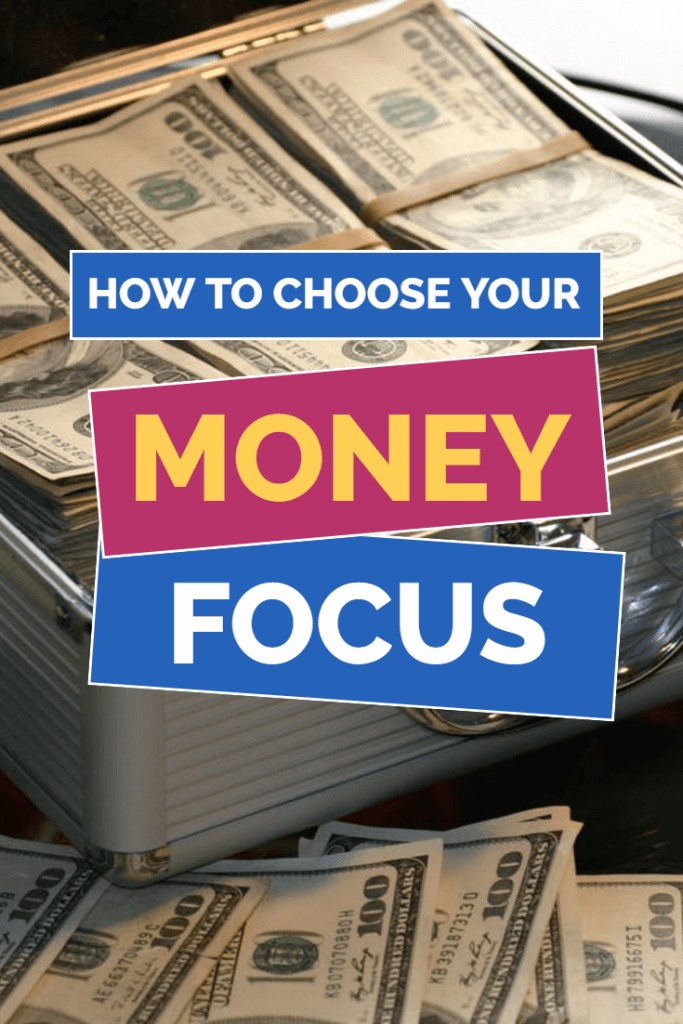
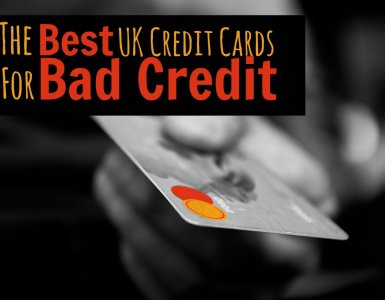


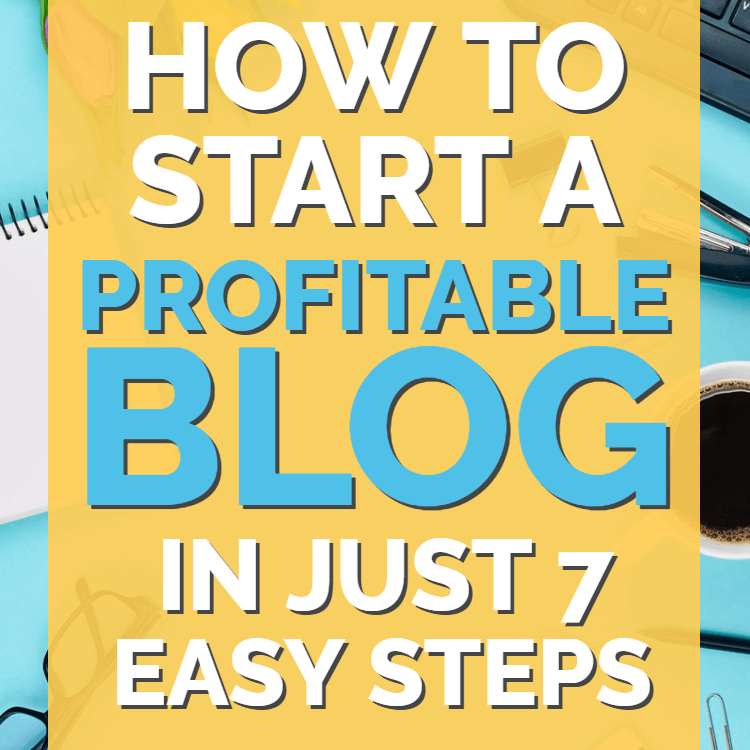


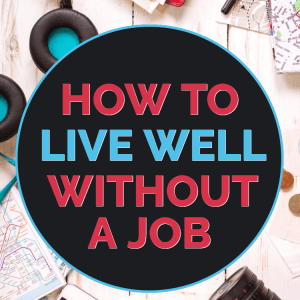
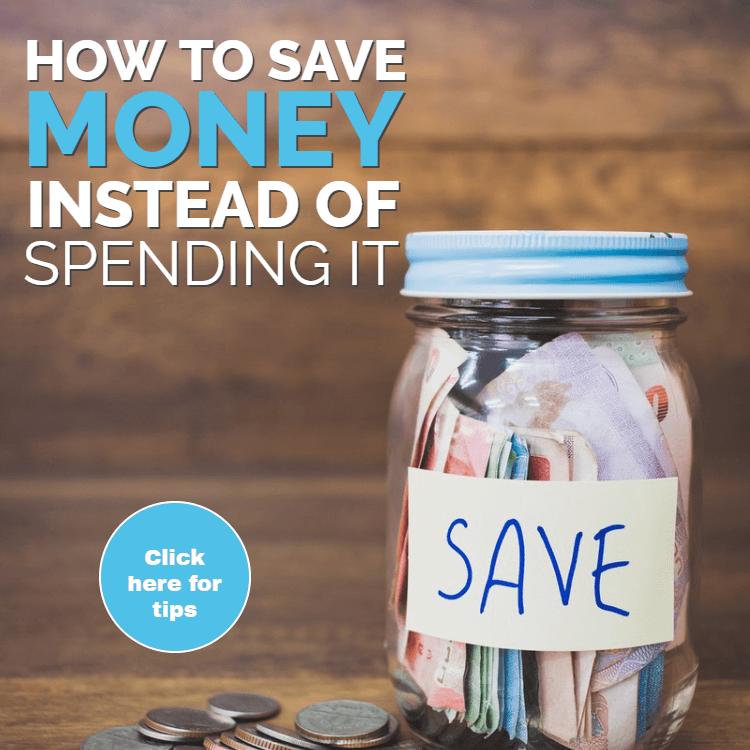
Add comment